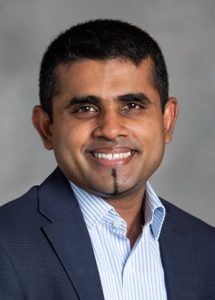- Home
- Academics
- First-Year Writing
- Phoenix Rhetorix
- 2022-23 Journal
- Solving the English Language Barrier in Computer Science
Solving the English Language Barrier in Computer Science
Solving the English Language Barrier in Computer Science
A Video Essay by Jacob Karty (he/him)
Author Interview: Jacob Karty 
Q. What was your inspiration for creating “Solving the English Language Barrier in Computer Science”? Why was this project meaningful to you?
A. I was first inspired to complete this project when discussing the racist history of Orientalism in class. After this discussion, I looked for examples of how this history applies to engineering and computer science and found the language barrier. This project helped me understand the importance of considering other people’s experiences. This is meaningful to me because this understanding will be necessary when I am working as an engineer in the future, as engineering is a service industry.
Q. Is this your first time working on a video essay? If yes, what did that learning process look like for you? How has it changed the way you’ll work with writing in the future?
A. This was my first time working on a video essay. My process was very back and forth. There were lots of edits based on feedback from my peers and professor, as well as edits once I started recording.
Q. What is one thing you want Phoenix Rhetorix readers to take away from your piece after watching it?
A. I want my audience to be mindful of their biases. Although most people who will watch this are not directly affected by the language barrier in computer science, showing that there is this language barrier in a place most people do not expect will hopefully motivate my audience to be more mindful of other potential biases in their own fields.
Q. What roles did your peers play in developing this project?
A. My peers helped me a lot during the development of this project. Most notably, Rony Dahdal was a big help during his scenes. He improvised a lot of lines that I kept in the final piece, and I am very thankful for that. My peers also helped with simplifying the material. When I presented my idea for my video in my English 1100 class, my classmates had a lot of good ideas on which parts I needed to break down and explain more in detail so it was accessible to a wider audience.
Q. What advice would you give to students who are currently enrolled in ENG 1100, might want to complete a similar project, or are interested in publishing in Phoenix Rhetorix?
A. Follow your passion! Take extra time during your brainstorming to make sure that you are excited about the project, as it is much easier to write about something that you are interested in.
ENG 1100 Faculty Interview: Dinidu Karunanayake (he/him) 
Q. During your ENG 1100 class, what about Jacob’s piece stood out to you?
A. My first-year writing pedagogy is informed by the major investments of my literature teaching—in particular, politics of representation, the power of the written and spoken word, and the limitations of the written word at times to capture the human experience. My first-year students approach composition as a practice not limited to the written word, and as an ethical process that should engage diverse audiences. Jacob started his project as a standard research essay and put it through multiple rounds of revision after soliciting feedback from his colleagues and myself. He first presented his work to an academic audience. Then, he remediated the essay into a creative multimedia project in order to take the scholarly knowledge to the world outside academia. He has excelled, not only in the technical aspect of composition, but also in social-political engagement.
Q. How do you see Jacob’s piece contributing to Elon’s ongoing conversations regarding diversity, equity, and inclusion?
A. At the heart of any DEI conversation is a call for proactive and ethical engagement with the world we live in together with a cultivation of an intercultural, global consciousness. Jacob brings an interdisciplinary inquiry into his work. As a computer science major, he analyzes a significant issue that has afflicted the field. Not only does he look at it from the perspective of an informed global citizen, but he also proposes a solution.
Q. Did Jacob face any particular challenges with this assignment? If so, how did you help them navigate those challenges, and/or how did they work to overcome them?
A. Every process of composition is challenging in its own way. What matters is how students take upon those challenges. One of the main difficulties was selecting the material from the research essay to use in the multimedia text, which meant that students had to let go of some of the content they produced with hard labor. But I think Jacob handled that challenge well.
Q. How do you see Jacob’s piece contributing to conversations at Elon about “writing to change oneself and the world”?
A. Jacob has demonstrated a desire to make positive change. He sees the need to take the knowledge we create within the four walls of the classroom to the world outside. In this process, he is conscious of his own positionality.